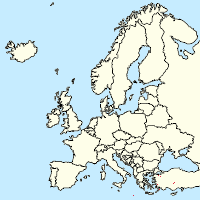Петицията е адресирана до:
European Commission
We call on the European Commission (EC) and the European Central Bank (ECB) to enable the national governments to adjust their spending in response to the Corona virus crisis, so that Member States do not have to look to markets for "financing" and be burdened with repayment obligations. To that effect, we call for the following two policies:
Make the ECB's Pandemic Emergency Purchase Programme (PEPP) a permanent institution. This removes all influence of financial markets on national governments and permanently ends financial speculation on exits of single Eurozone countries.
The deficit to GDP limit specified in the Stability and Growth Pact has been lifted by the European Commission via the general escape clause. This means that the EU will not punish member nations for excessive deficits. We call for leaving this clause active until at least Member States' economies recover from the crisis to let national governments spend sufficiently in order to address their citizens' problems.
The European Central Bank has the means to create the needed Euros without limit to address the economic challenges ahead. National central banks in the Eurozone facilitate the payments for their national governments by selling government bonds to banks. With PEPP, the ECB guarantees to buy these bonds. This process creates new Euros without credit risk and without a financial burden to be “shared”. More government spending in Italy does not per se mean less government spending or higher taxes in other Eurozone countries. Additionally, due to high unemployment rates in the last decade, Italians desire to save more than other Europeans and so are less likely to spend and cause inflation; Italian government spending can therefore be correspondingly higher.
The Euro is nothing more than a tax credit - a set of legal agreements which allow money to be created with a keystroke at the ECB. It is not a tangible object which some Europeans give up so that other Europeans can use it – this incorrectly sees money as a zero-sum game and leads to austerity policies that would destroy both the Eurozone and the EU.
** We will need to share real resources, labour and knowledge in solidarity, but we should not use the concept of "financial burden".** It is important to understand that each Euro is a liability of the ECB, casually called a debt, because they are just state-guaranteed tax credits. Public debt is not a bad thing per se when recognised for what it is - the Euros spent by the governments that have not yet been used to pay taxes. When a government spends, in the first instance it doesn’t come out of citizen’s pockets. A close examination of actual monetary operations shows that all Euros used to pay taxes necessarily come first from the ECB crediting a member's account on its own books. Unlike personal or corporate debt, public debt may be a political problem, but it is not an operational problem, because the ECB is the issuer of Euros, not a user of Euros like us. Therefore, a government is always able to make payments if the central bank is willing to process that payment. This can be seen in the UK, where the Bank of England has just agreed to let the Government spend money without issuing public bonds, which is also known as "direct financing".
The EC has also temporarily lifted the 3% public deficit to GDP limit so that Member States can mobilise all resources to address the crisis. The 3% limit is based on the Stability and Growth Pact, signed in 1997. That was more than 20 years ago and we ask how useful this limit is today. Economic stability is meaningless when millions of people are unemployed and live in poverty. The European economy has been in a slump before the Corona Virus. It is time to try a different approach.
Making PEPP permanent and lifting the deficit to GDP limit until the European economy has fully recovered will ensure that interest rates for Italy and other countries will not shoot up later and trigger a new Euro crisis, while simultaneously avoiding austerity policies that have proved unhelpful in the past. With these measures in place, all Member States can address the economic impact of COVID 19 and other challenges ahead to build a better and stronger Europe.
Причина




